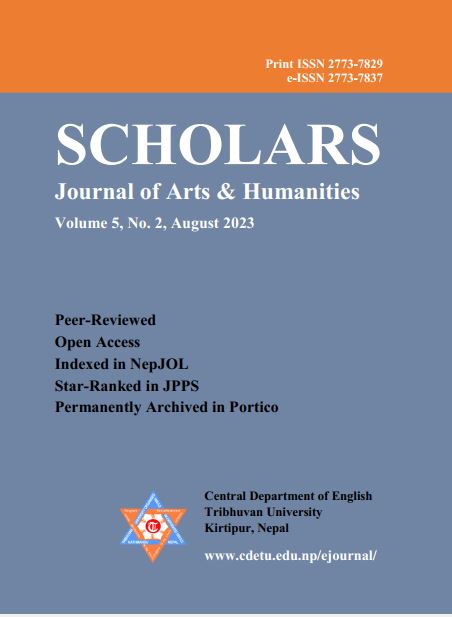Constructing Nuda Vita in Sophocles’ Antigone and Behn's Oroonoko: A Biopolitical Perspective on the Concept of Life
DOI:
https://doi.org/10.3126/sjah.v5i2.57499Keywords:
Biopolitics, biós, nuda vita, homo sacerAbstract
The paper aims to offer a biopolitical interpretation of Sophocles’ Antigone and Aphra Behn’s Oroonoko by exploring the role of power in constituting the characters’ bare life. It argues that Oroonoko's relationship with Imoinda and Antigone's burial of Polynices reduce them to slavery and also shows that their captive killing epitomizes their outlawed life (zoé). To elucidate their outlawry brewed by the sovereign’s power, the paper looks into Antigone and Oroonoko’s socio-politically excluded vulnerable life. Their precarious life manifested in legal exclusion appeals Giorgio Agamben’s concept of homo sacer, an outcast who can be killed without incurring homicide. Departing from Michel Foucault’s notion of life fostering biopower that supplants the sovereign power, Agamben discusses that modern power exercise encompasses sovereign power that inherits the right of taking life or letting it live in Homo Sacer. Tuning with Agamben's bare life, this paper critically analyzes Antigone and Oroonoko’s life to slavery and death which suggest their production of biopolitical body. It infers that the state violence witnessed by Antigone and Oroonoko substantiates the killability of homo sacer.
Downloads
Downloads
Published
How to Cite
Issue
Section
License

This work is licensed under a Creative Commons Attribution 4.0 International License.
© Central Department of English, Tribhuvan University and Authors




